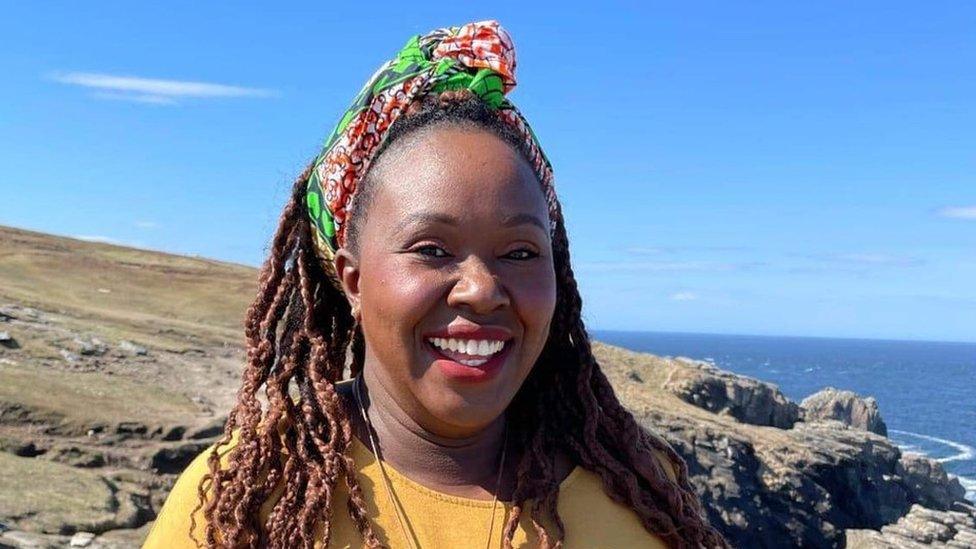Racism: Mental health impact of profiling and trolls
- Published
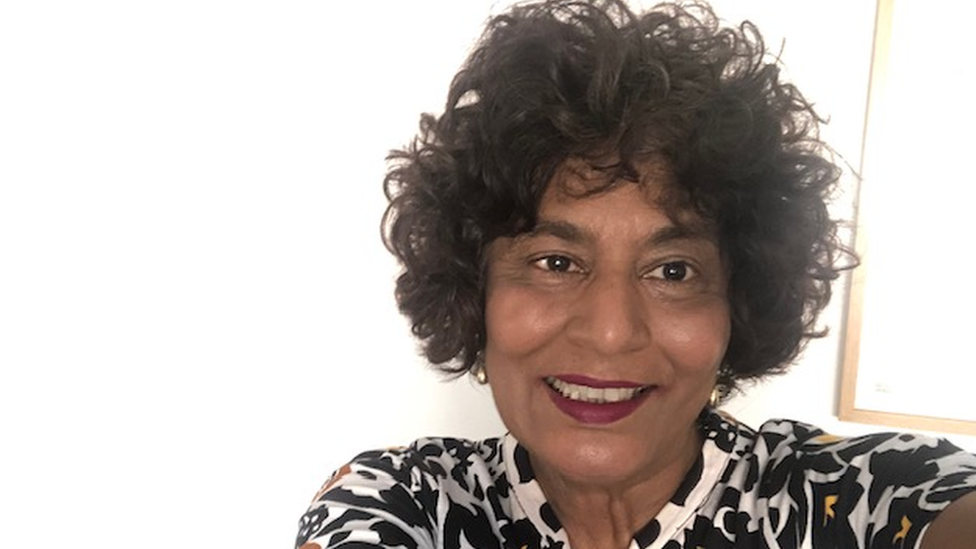
Susan Cousins says a recent incident in a shop left her feeling anxious and frustrated
Susan Cousins was hurrying around a shop, eager not to be late for work when she noticed she was being followed by a member of staff.
Minutes later, at another shop in Cardiff, she heard herself being described on the store's walkie-talkie.
"[They'd] racially profiled me'," said Susan, an author and counsellor.
From being spat at by strangers as a child, to being refused service at pubs in her 20s, racism is something Susan has endured all her life.
"Being a visible, racially-minoritised person makes it kind of an everyday experience and you can't do anything about it - you're there living with the colour of your skin," she said.
She has made a career of standing up to racism: first as a counsellor working with clients from ethnic minority backgrounds in Bristol and then as an author on the subject and as Cardiff University's senior compliance adviser for race, religion and belief.
The shop incident earlier this month left her distressed.
"I left and I was really anxious, I was just very frustrated with the whole thing," said Susan.
She said she spoke to the store detective and the managers in both shops but did not feel she got through to them.
"I said 'I've been coming into these shops for 30 years, you all know me, what is going on here? It's ridiculous'."
She has many stories like that.
'Really shaken'
During Covid lockdown she called police after being targeted by racists online.
"It was a very difficult experience... it really did impact on my wellbeing and my life," she said.
One Saturday she woke up to what felt like hundreds of direct messages on X, formerly known as Twitter, from people offering support.
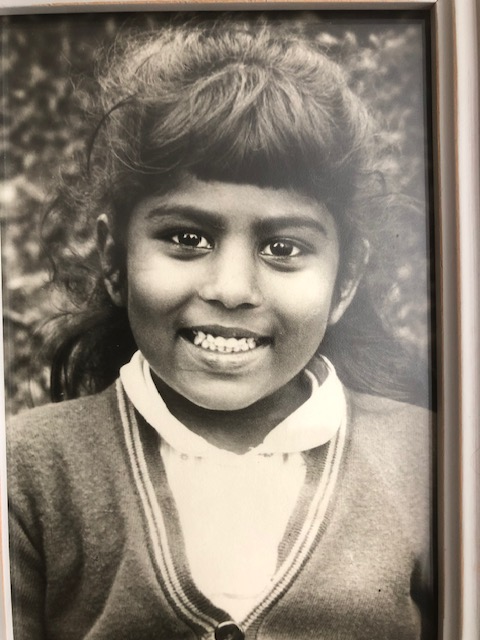
As a child Susan was often spat at in the street
Confused, she checked her account and was stunned to discover six different people had got together and each tweeted her one letter which spelt out a racially-offensive word.
"I was really shaken by it, I was really upset and I was concerned for my safety," she said.
"I was thinking: 'Are these six people in Cardiff? Am I safe walking out on the street?'."
She called the police, who arrived quickly but the investigation that followed led to nothing.
Susan recalled another time when she complained to swimming pool staff after hearing others in the pool say some nearby Asian swimmers wearing full cover swimwear were "disgusting, awful and unhygienic".
"When I first came to Cardiff over 30 years ago it was overt, people wouldn't actually serve you," said Susan.
"I've been situations, like going to a pub, and I wouldn't be served but my white friends wouldn't do anything about it."
'Traumatised'
Then there are traumatic memories from her childhood.
Susan was brought up by white Catholic parents in Kettering, Northamptonshire, who adopted her from an orphanage in Mumbai, India, as well as seven other children from different parts of the world.
"One of the most awful incidents I had was when I was about nine or 11 or something," she said.
"I was in my school uniform and a grown-up man tripped me up, put his leg between my legs and I fell flat on my face.
"I cut my head on the side, both my knees were bleeding, so I lay there for quite some time, and nobody helped me, which was even worse actually than the incident."
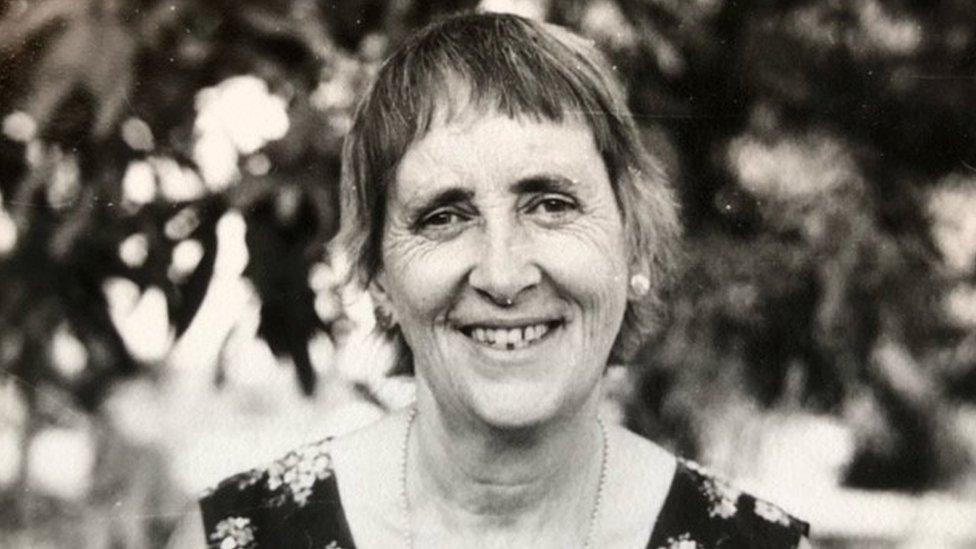
Susan's parents - her late mother pictured here - adopted her from an orphanage in Mumbai in India
She chose to hide the incident from her parents, fearful they would call the police and a "big fuss".
"It was a terrible, horrible experience and I was really, really traumatised by that," she said.
"Although that was the worst physical assault I ever had, as a child I was continuously spat on in the streets. I just became extremely anxious as a child."
She worries for children today. "Those kinds of incidents are still going to happen," she said.
These days, she believes racism is sometimes less overt, but still "kind of everywhere and every day".
"Some of it is micro-aggressions, some of it is a lot more overt, some of it is hate crime," she said.
"These things often happen when you're on your own, and there's a reason for that - you don't have a witness and that's when people can target you."
From her work as a counsellor she has seen people so traumatised by racism as they develop conditions such as agoraphobia, depression and anxiety.
She is passionate about helping those who experience racism to protect their mental health and has written two books on the subject - Overcoming Everyday Racism and Making Sense of Micro-aggressions.
Susan wants people from ethnic minority groups to learn to cherish their identity, "which is difficult when a majority of society is quite negative about it".
She has advised clients traumatised by racism to take up an interest - "I paint and I find that's a huge kind of antidote to anything for me" - and also to focus on diet, exercise, routine and friendships.
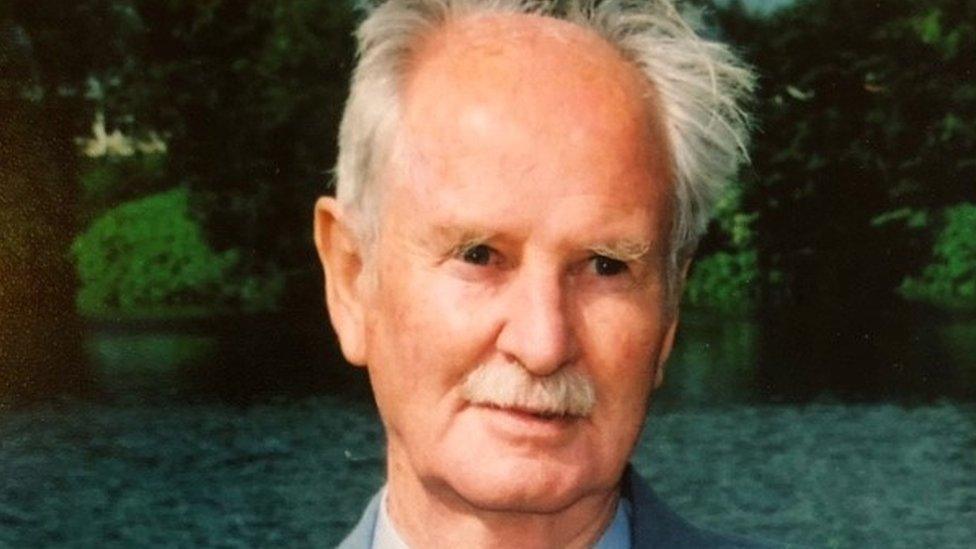
Susan's parents - her late father pictured here - adopted eight children from different parts of the world
"When I talk to my black and brown women friends and white people aren't in the room, I don't think white people would quite believe the conversations," she said.
"It's such a relief sometimes to be in that place where you just feel a sense of belonging, and you feel like you can say something and you don't really have to describe it and you don't really have to justify it and face the kind of defensiveness around it."
She said defensiveness was a real barrier to progress.
"There are some people, friends I've known for years, and I never talk to them about race because I just know they will say something silly and I don't want to be involved in that conversation," she said.
She wants white people to listen properly when others open up about racism.
"White people can accept the stories that racially minoritised people bring to them," she said.
"That doesn't mean you have to really deeply understand it, it just means that you have to listen, develop the listening skills and not reach for defensiveness."
If you have been affected by issues raised in this story you can find details of where you can get support at BBC Action Line.
- Published6 November 2022
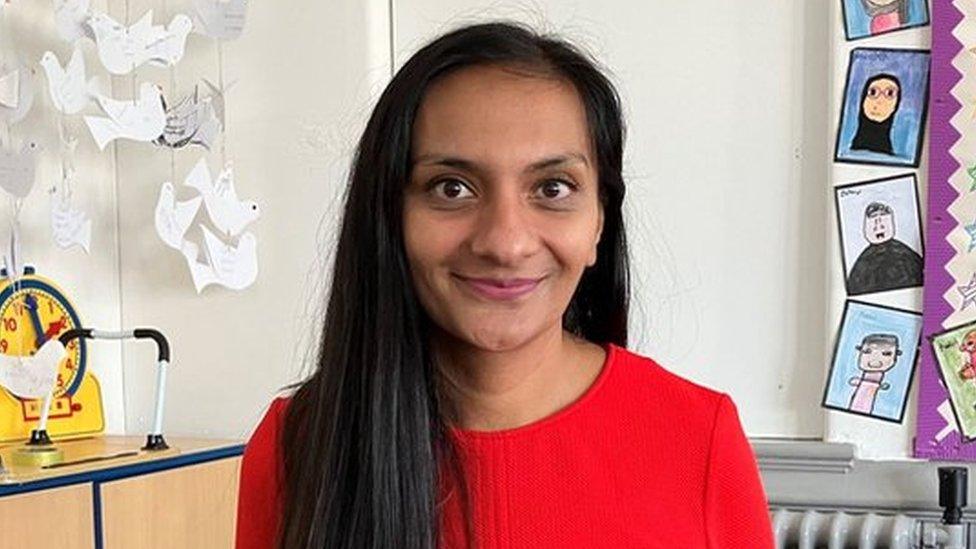
- Published17 August 2023
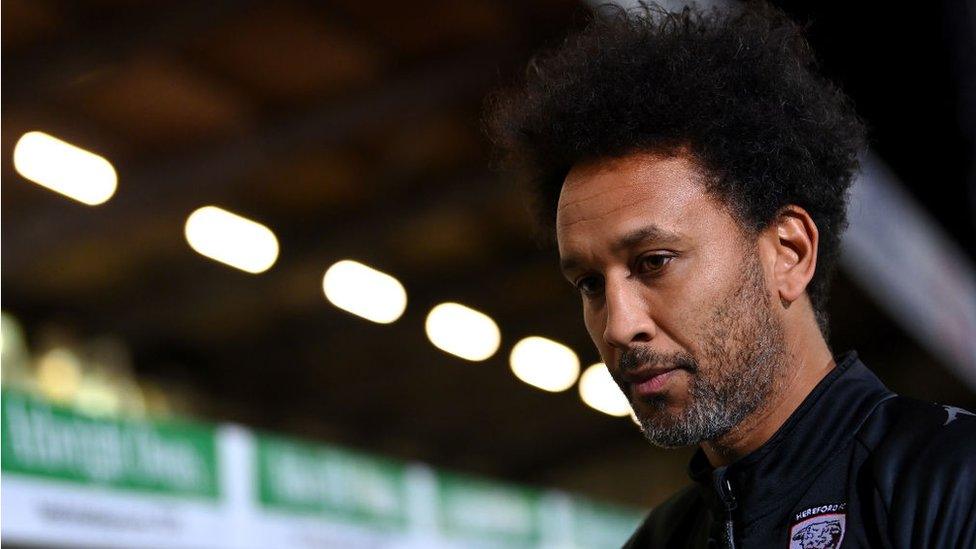
- Published8 June 2023
